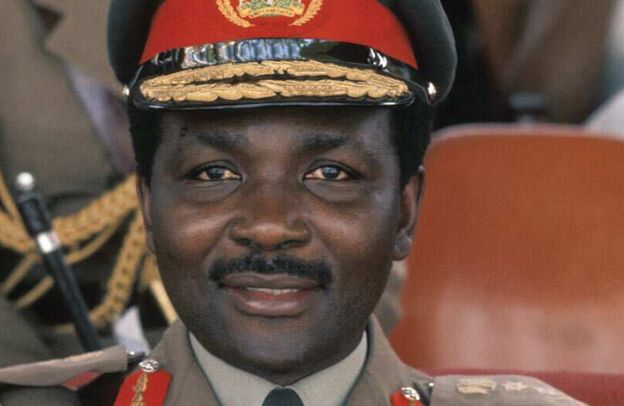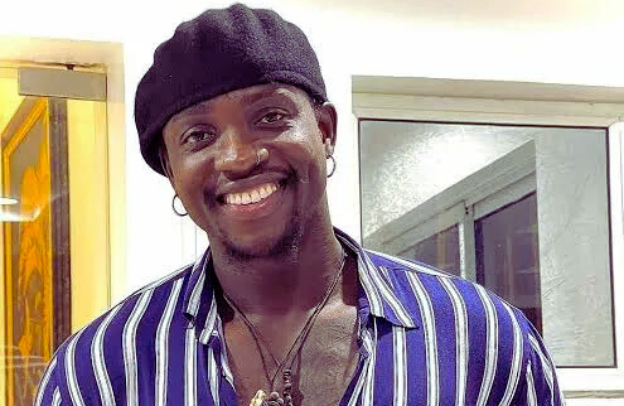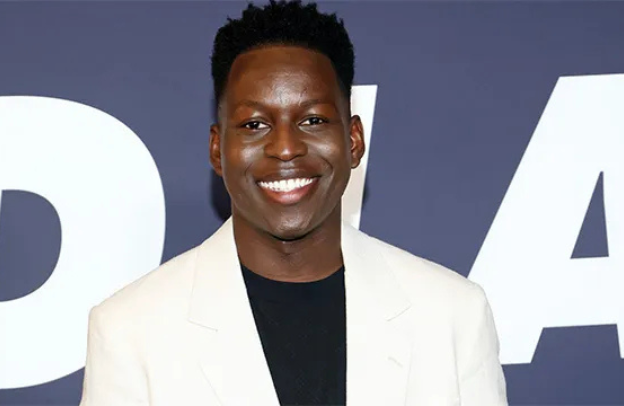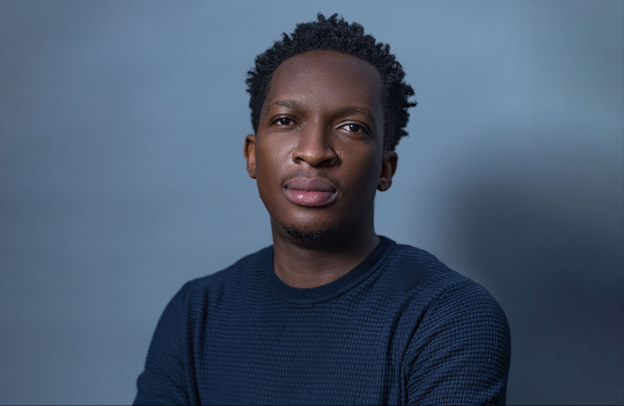General Yakubu Gowon, Nigerian Military Head Of State – 1966 To 1975

General Yakubu Gowon, age 88 as of this recording was a military Head of State who oversaw a controversial Nigerian Civil War. Upon the conclusion of the war, he delivered the renowned “no victor, no vanquished” address, aiming to foster healing and reconciliation in the country. In today’s video, we are going to learn about his life and legacy and what we need to remember about him.
Want to learn more about storytelling? Start by downloading the first chapter of The Storytelling Series for Small Businesses.
Early Life and Military Career
Yakubu Gowon was born on October 19, 1934, in the small town of Pankshin in present-day Plateau State, Nigeria. Gowon hails from the Nga’s ethnic group and was born in Lur, a small village located in the present Kanke Local Government Area of Plateau State. Raised in a modest family, he demonstrated academic excellence and leadership qualities from an early age.
During his early years, his parents, Nde Yohanna and Matwok Kurnyang, served as Church Missionary Society (CMS) missionaries, leading them to settle in Wusasa, Zaria. Remarkably, his father celebrated his marriage on the same day as the wedding of Prince Albert and Lady Elizabeth Bowes-Lyon, who later became King George VI and Queen Elizabeth.
Being the fifth child among eleven siblings, Gowon spent his formative years in Zaria, where he received his education. Demonstrating impressive athletic abilities, he excelled as the school’s football goalkeeper, pole vaulter, and long-distance runner. In his first year, he even broke the school mile record, and his prowess led him to be chosen as the boxing captain.
His potential was recognized when he attended the Nigerian Military Training College in 1954. Subsequently, he received further military training at the Royal Military Academy Sandhurst, United Kingdom. In the early 1960s, he demonstrated his commitment to peace by serving twice in the Congo region as a vital member of Nigeria’s peacekeeping force.
Following the turbulent events of the January 1966 coup in Nigeria, he assumed the role of Chief of Staff to Major General Johnson Aguiyi-Ironsi, who had become the nation’s new leader. However, the political landscape continued to be turbulent, and in July 1966, a countercoup led by Northern officers shook the nation.
Amidst the uncertainties, Gowon emerged as the leader of the newly formed military government, marking the beginning of a significant chapter in his life. That was at the tender age of 32, becoming the youngest African leader at the time. That is almost incomparable to the current crops of politicians in the country, who would appear almost as grandparents but still want to do the same work of a 32-year-old leader. Even at 32 with his youthful energy, running Nigeria was still challenging.
Dealing With Ethnic Tensions And Unifying The Country
Taking the helm of Nigeria’s leadership during a turbulent period, Gowon wasted no time in making significant changes to the country’s administrative structure. By this time, there was skyrocketing ethnic tension in the country, and nothing was certain for the newly independent country. Here is a clip from Gowon, trying to plead for calm. It was really getting too much with the Igbo people having a heavy fallout as a result of the January coup:
“You all know that since the end of July, God in his power has entrusted the responsibility of this great country of ours into the hands of yet another Northerner. I receive complaints daily that up till now Easterners living in the North are being killed and molested, and their property looted. I am very unhappy about this. We should put a stop to it. It appears that it is going beyond reason and is now at a point of recklessness and irresponsibility.”
While he succeeded in putting an end to attacks against the Igbo people in the northern regions, Gowon couldn’t achieve long-term peace. As a final endeavor to find a resolution, on May 27, 1967, he declared a state of emergency and he undertook a bold reorganization of the four regions, transforming them into twelve states. Those 12 states would further be broken down by successive military administrations to the current 36 states in the country, excluding the federal capital territory, Abuja.
To oversee the affairs of these newly formed states, Gowon appointed military governors, carefully chosen to maintain stability and address the pressing challenges faced by the nation. But that did not really solve the problem because after three days, on May 30th, the Eastern region proclaimed its independence as the state of Biafra, under the leadership of Odumegwu Ojukwu, the military governor of the Eastern Region. Subsequently, armed conflict between Biafra and the Nigerian government commenced in July, leading to the death of over a million people.
Some political spectators will argue that Gowon assumed power because the country was on the brink of disintegration following a series of ethnic and regional clashes. Gowon, himself would declare his famous slogan that “To keep Nigeria one is a task that must be done.”
But this is the kick, and it obviously did not start with Gowon, you don’t keep people together by force, you keep them together through consensus, respect, and understanding of each other’s boundaries. It’s like marriage, you don’t keep a woman in the house by force, that will be kidnapping and when it comes to leadership, the Nigerian political leaders must lead. And to lead means being in the front, walking towards a destination, and the people following because they see you as a leader because you have been able to inspire them to believe in your leadership and the destination ahead of them.
But the Nigerian people really cannot say this of any of their political leaders, particularly the military head of state since independence who literally drag them along with a rope on their neck.
Again, this problem was not created by Gowon. Instead, the 32-year-old general and the other military leaders after him simply inherited a rather crude and uncertain entity they simply needed to keep together by force.
With all fairness, we are still almost in the same situation today, like the broken entity that Gowon needed to put together by force. The laws and the federating constitution are not designed to reflect the will of the people, the country does not exist based on common consensus and respect for one another but by force.
Handling the Nigerian civil war
In his biography on Britannica, it was stated that “Gowon directed government forces to remember that they were essentially fighting Nigerians, who were to be encouraged to rejoin the country.” According to the publication, “He also allowed a team of international observers to monitor the conduct of his troops.”
On the part of the Biafra fighters, they did put up great resistance. I have interviewed several experts on the Biafran front, including those who were on the ground during the war. No one can deny that they did the best they could under the circumstances, but they were up against a more robust opponent with better training and more resources, and it was almost logical that they would not defeat the Nigerian army. As the second year of the war unfolded, the Nigerian government’s grip tightened, claiming control over more than half of Biafra’s original territory.
With the Igbo’s determination mounting, a pivotal moment came on June 30, 1969, when the government took a drastic step, cutting off all Red Cross aid to Biafra. The following weeks saw another cruel blow as food supplies to the region were restricted. Faced with dwindling resources and a relentless siege, what remained of the secessionist state was left with no choice but to succumb to the unyielding pressure.
Throughout the difficult 30-month conflict, the nation witnessed a heart-wrenching toll: over one million lives were lost to the conflict, a staggering number given the country’s population at the time of the war. And then, on January 15, 1970, the once vibrant hopes of Biafra were dimmed when General Phillip Effiong surrendered to Head of State, General Yakubu Gowon in Lagos, the then Nigerian capital city.
Following the Biafran surrender, General Gowon introduced a policy he called “No victor, no vanquished,” marking a defining moment in his regime. However, despite the triumph in the civil war, Gowon’s attempt to implement the ambitious 3R program which focused on reconstruction, rehabilitation, and reconciliation across the nation did not work.
However, the 3R program was commendable, aiming to heal the wounds of war and foster national unity as one would imagine in the case of Rwanda after the 1994 genocide. Nonetheless, the execution of Gowon’s vision proved to be flawed, leaving many citizens disheartened and disillusioned. The broken promise to reinstate civil rule by 1976 only exacerbated the situation, further eroding the people’s confidence in Gowon’s leadership.
In addition, the rapid proliferation of corruption within his administration eroded the country’s faith in his ability to lead effectively. As Nigeria grappled with these challenges, Gowon’s popularity plummeted, and his once-promising legacy became only a past glory.
In a bloodless coup on July 29, 1975, General Yakubu Gowon was ousted from power, and the reins of leadership were taken up by General Murtala Muhammed. Following his removal, Gowon made the decision to travel to Britain. During his time there, he embraced the opportunity to pursue further education and enrolled at the prestigious University of Warwick. There, he successfully earned a doctoral degree in political science.
After several years abroad, Yakubu Gowon eventually returned to Nigeria in 1983, where he has since chosen to reside. His journey, marked by the highs and lows of leadership, has seen him transition from the pinnacle of political power to a pursuit of knowledge and personal growth abroad, ultimately culminating in his return to his homeland.
His Legacy And Remembrance
General Yakubu Gowon’s leadership left an indelible mark on Nigerian history and remains an inspiration for many. During his tenure as head of state of Nigeria, Yakubu Gowon played a significant role in overseeing the contentious Nigerian Civil War. Following the conclusion of the war, he delivered a notable speech known as the “no victor, no vanquished” address, aimed at fostering an environment of healing and reconciliation.
By pronouncing this message, Gowon intended to encourage both the victorious Nigerian side and the secessionist Biafran side to come together as one nation again. He believed that reconciliation and forgiveness were essential for the country to move forward and rebuild itself as a united, peaceful, and prosperous nation. Although most of his programs to truly heal the country from the effects of the war were not effective, like most other situations in the country, both before and after the war, his intentions were good. At least on paper.
Gowon’s “no victor, no vanquished” speech has left a legacy in Nigeria’s history. It showcased his commitment to national unity and the resolution of conflicts no matter what happens. While his approach to the war and its aftermath remains a subject of debate and analysis, the significance of his message and its impact on the nation’s healing process cannot be understated.
Want to learn more about storytelling? Start by downloading the first chapter of The Storytelling Series for Small Businesses.





